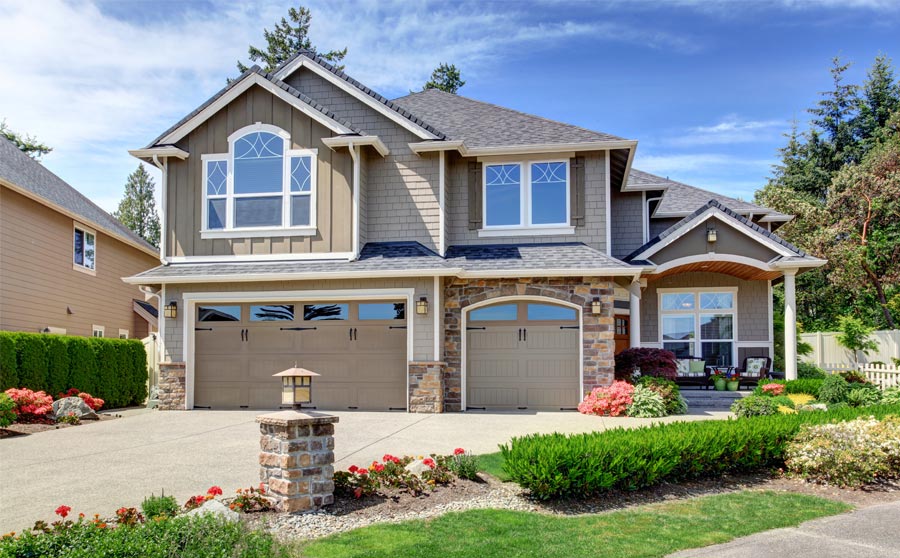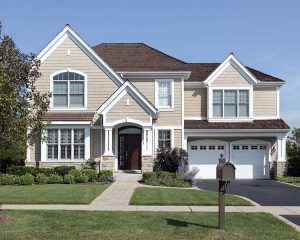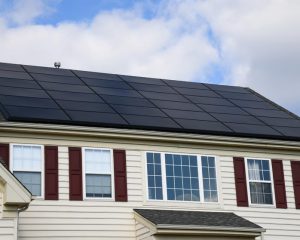After years of living in various homes, most people subconsciously develop a list of their favorite features and a list of things they hate. Some people can’t live without smart technology, while others just want to make sure there are outlets well-positioned throughout each room. Whether you’re dreaming about the big picture or have already created your ideal home down to the last detail, it’s essential to understand the costs involved in custom homeownership. To help, consider the following 11 expenses every custom homeowner should expect.
1. Building Expenses
First and foremost, one of the biggest expenses involved in building a custom home is the project’s cost. The cost analysis of building a new luxury home can be a little intimidating initially, which is why it’s an important first step to review. On average, it can cost anywhere from $115,000 to $450,000 and more to build a custom luxury home. The actual dollar amount will depend on the location, size, features, and materials used in the build. Still, it’s important to meet with a luxury home builder to better understand what the building expenses are. For a more in-depth understanding of custom home prices, consider this cost analysis of building a new home.
2. Luxury Features
As a custom homeowner, you can add as many (or as few) luxury features as you’d like. That’s one of the best parts of the process. While there are several timeless custom home trends, some features carry a higher price tag than others. Therefore, you’ll want to list all the features you’re thinking about including and consider their cost. Write down both interior and exterior features, along with their potential price tag. This will give you a better overview of associated expenses, which you can discuss further with your custom home builder. Then, consider each feature’s immediacy. Do they need to be installed upon the initial build, or can you make in-home upgrades later? In addition to building costs, features can be one of the larger expenses custom homeowners should expect—especially if you want to include everything upfront.
3. Mortgage Payments
Once your house has been completed, you still need to make monthly mortgage payments. Building costs may differ from the mortgage, so don’t forget to factor that in. This means paying back the rest of the home loan each and every month unless you were able to pay for your custom home in total upfront. Some custom home builders include the building costs in the anticipated cost of the home, so it’s necessary to understand what your home loan covers and what will be a separate expense well in advance.
4. Routine Home Maintenance
Although your home may be brand new, it still needs routine maintenance. This is one expense every custom homeowner should prepare for, as many believe they have a few years before anything will need to be done. While it’s true that you likely won’t need to make any major repairs or replacements within the first few years, preventative maintenance will help you elongate the lifespan of your custom home and the materials involved. This, in turn, reduces the chances of premature repairs or replacements. Custom homes can be pricey, so taking care of your investment and setting aside a budget for routine home maintenance is essential.
5. Emergency Repairs
With that being said, you should also have a little money set aside for emergency repairs—just in case. Unpredictable weather, theft, or other accidents can result in broken windows, damaged roofing, and more. Although new homes are less likely to incur serious damage, you can never be certain that nothing bad will happen.
6. Property Taxes
Property taxes are another (sometimes shocking) expense every custom homeowner should expect. Property taxes can be extremely high and are mainly influenced by your home’s location. For instance, property taxes are currently 2.07% in Illinois and only 0.57% in Arkansas. This is a percentage of the total home value, so more expensive custom home builds will inevitably result in higher property taxes. However, choosing to build your new home in a state with lower averages can help offset these costs, so if you have some flexibility in location, it’s worth considering.
7. Homeowner’s Insurance
You’ll also need to purchase homeowner’s insurance and pay a monthly fee in order to be approved by a mortgage lender. This will help protect your investment and increase your likelihood of loan approval. Homeowner’s insurance must be paid monthly until your home is completely paid off, sometimes longer. Again, this expense tends to vary state by state and based on the coverage you need, so it’s important to research ahead of time. For example, in states where natural disasters occur often, homeowner’s insurance rates will be higher than those with no (or very low) risks.
8. Utilities
Every custom homeowner should also prepare to pay their utility bills accordingly. Again, these can vary drastically based on your home’s location, size, and the type of appliances you have. You should expect to pay more if you’re constantly heating and cooling a very large interior. If you use a split system to cool parts of the house, you might be able to lower your bills, but this could make some areas of your house uncomfortable. Although these bills can be low if not used much, they can reach well over a hundred or two dollars. The best way to offset energy costs and lower your bills is to utilize energy-efficient materials and appliances and make a conscious effort to turn things off when they’re not in use.
9. Lawn and Garden Upkeep
While some people love to landscape themselves, others aren’t too fond of it. If you’re the former, you’ll need to set aside some money for DIY expenses related to lawn care. If you’re the latter, you’ll need to set aside some money for professional lawn and garden care. These are often overlooked expenses in the long-term management of a custom home, but they can make a world of difference in your exterior’s appearance.
10. Pest Control
Unfortunately, in most areas of the country, pests are rampant during certain months of the year. To reduce the risk of having to undergo serious repairs caused by rodents, termites, or other pesky intruders, it’s important to set aside a budget for annual pest control. This could be as minimal as a yearly spray or more intensive treatments to keep away harmful insects. The type and frequency of pest control will depend on your location, so don’t hesitate to call a professional after you’ve settled in.
11. Cleaning Expenses
The final expenses every custom homeowner should prepare for are those related to cleaning and interior upkeep. You’ll need a few essentials and numerous cleaning supplies to help keep your home looking (and smelling) its best. You may also want to consider hiring a professional residential cleaner for regular deep cleans, but it’s unnecessary if you don’t mind doing it yourself. Luckily, when used properly, cleaning supplies can go a long way and not expire for years.
Although expenses for custom homeowners will vary depending on location, size of the home, and additional features, knowing what to expect is important for responsible budgeting. Another thing that can make a huge difference is hiring a reliable custom home builder to help you along the way. Your home builder is there to bring your vision to life and can make or break your experience of becoming a custom homeowner. Therefore, take your time and do your research. You’ll want a builder with experience, great references, and a proven track record. Luckily, the team at TradeMark Homes has you covered.
At TradeMark Homes, we make the process of becoming a custom homeowner enjoyable and stress-free. Our team works with you from planning through every step of the construction process to ensure you get the home you want with exceptional craftsmanship. We’re dedicated to turning the vision of your dream home into a reality by connecting with you to fully understand your lifestyle and needs. We also offer financial flexibility, so you can make responsible decisions regarding your expenses from the start. To learn more, fill out an inquiry form today. You can also call us at 479-267-9900 to schedule a consultation, discuss your vision, and review your budget.



